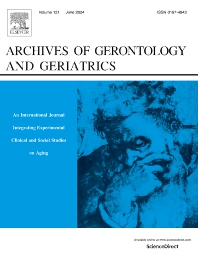Journals in Life sciences general
Journals in Life sciences general
- ISSN: 0001-8848
Adverse Reactions Titles (Section 38 Embase)

- ISSN: 1568-1637
Ageing Research Reviews

- ISSN: 0167-4943
Archives of Gerontology and Geriatrics

- ISSN: 1467-8039
Arthropod Structure & Development

- ISSN: 1439-1791
Basic and Applied Ecology

- ISSN: 1874-9399
Biochimica et Biophysica Acta: Gene Regulatory Mechanisms

- ISSN: 0304-4165
Biochimica et Biophysica Acta: General Subjects

- ISSN: 1931-3128
Cell Host & Microbe

- ISSN: 2405-4712
Cell Systems

- ISSN: 0749-0690
Clinics in Geriatric Medicine
